Mushrooms are Magic
Solar powered mushroom farming in Nepal improves livelihoods and nutrition, and reduces deforestation

Mushrooms are widely grown in Nepal. They are a high value crop that can grow in areas where low soil quality – or even a total absence of soil – prevents other types of farming.
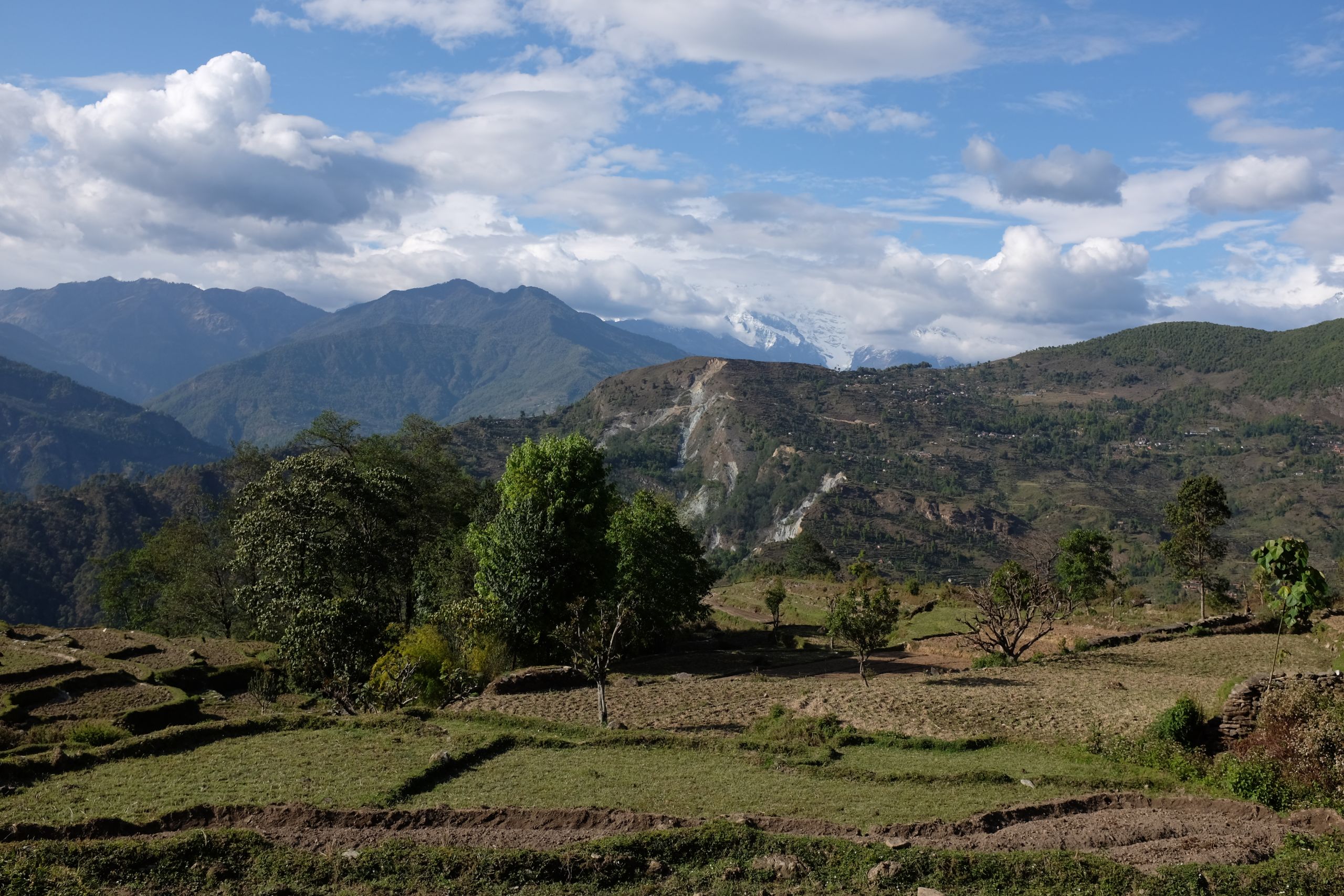
In Nepal, mushroom farming is mostly concentrated in the rural areas around major urban centres such as the Kathmandu Valley, Pokhara, and Narayanghat. The average national production of mushrooms is about 8 - 10 tonnes per day.
However, for traditional mushroom cultivation it is estimated that approximately one kilogram of firewood is consumed to produce one kilogram of fresh oyster mushrooms.
The traditional method begins by steaming the mushroom-growing medium (like straw) in a drum using firewood. Thus, for a daily production of 8-10 tonnes of mushroom, 8-10 tonnes of firewood is consumed every day.
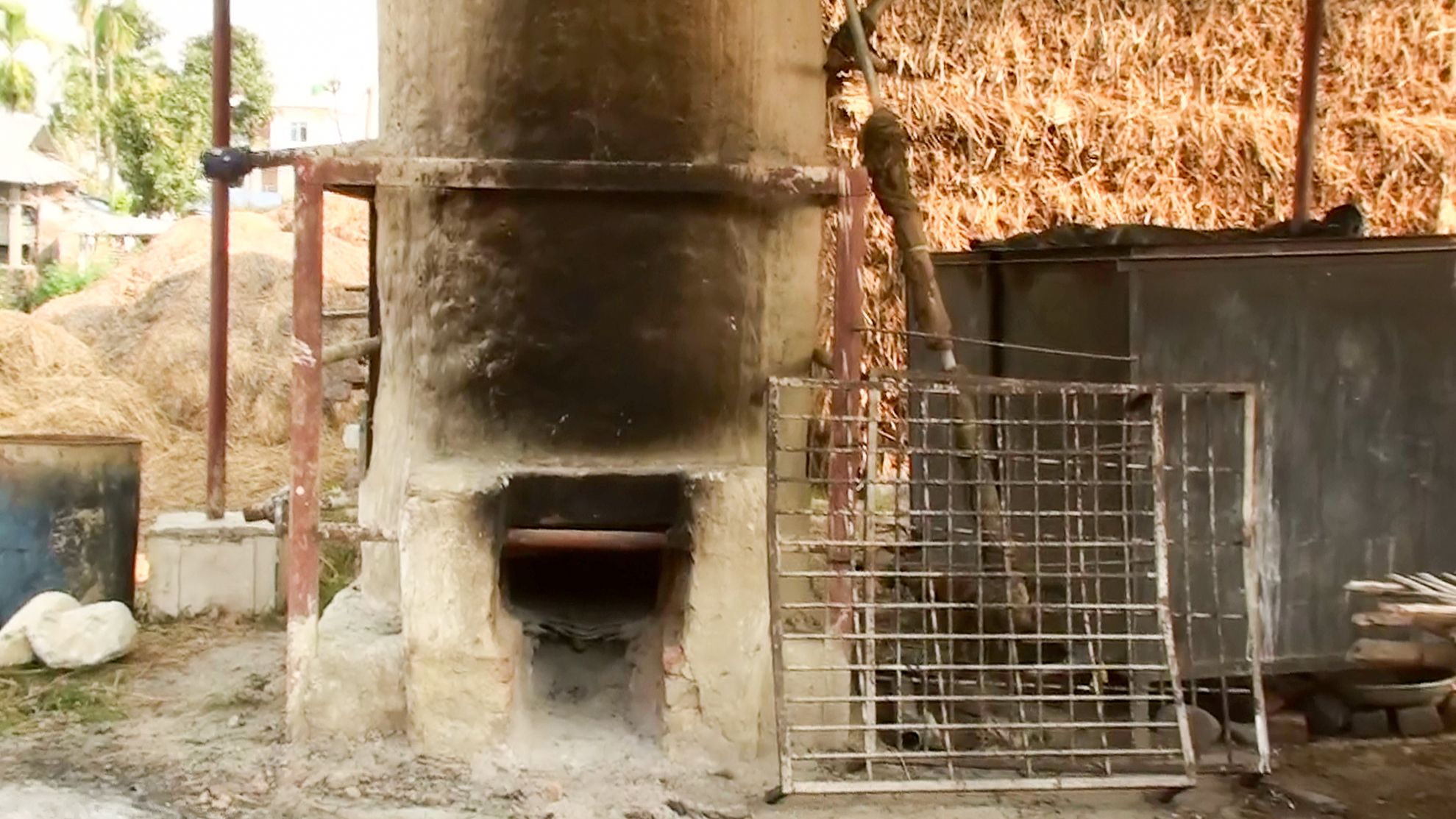
Mushrooms form an eco-friendly cash crop that can be cultivated indoors on agricultural wastes providing employment opportunities and enhancing farmers’ incomes.
Mushrooms are one of the highest producers of protein per unit of land area and time. As such, they have the potential to ensure a sustainable economy as well as nutritional security. Moreover, the spent mushroom substrate (like straw) left after mushroom cultivation can be reused as compost on farms.
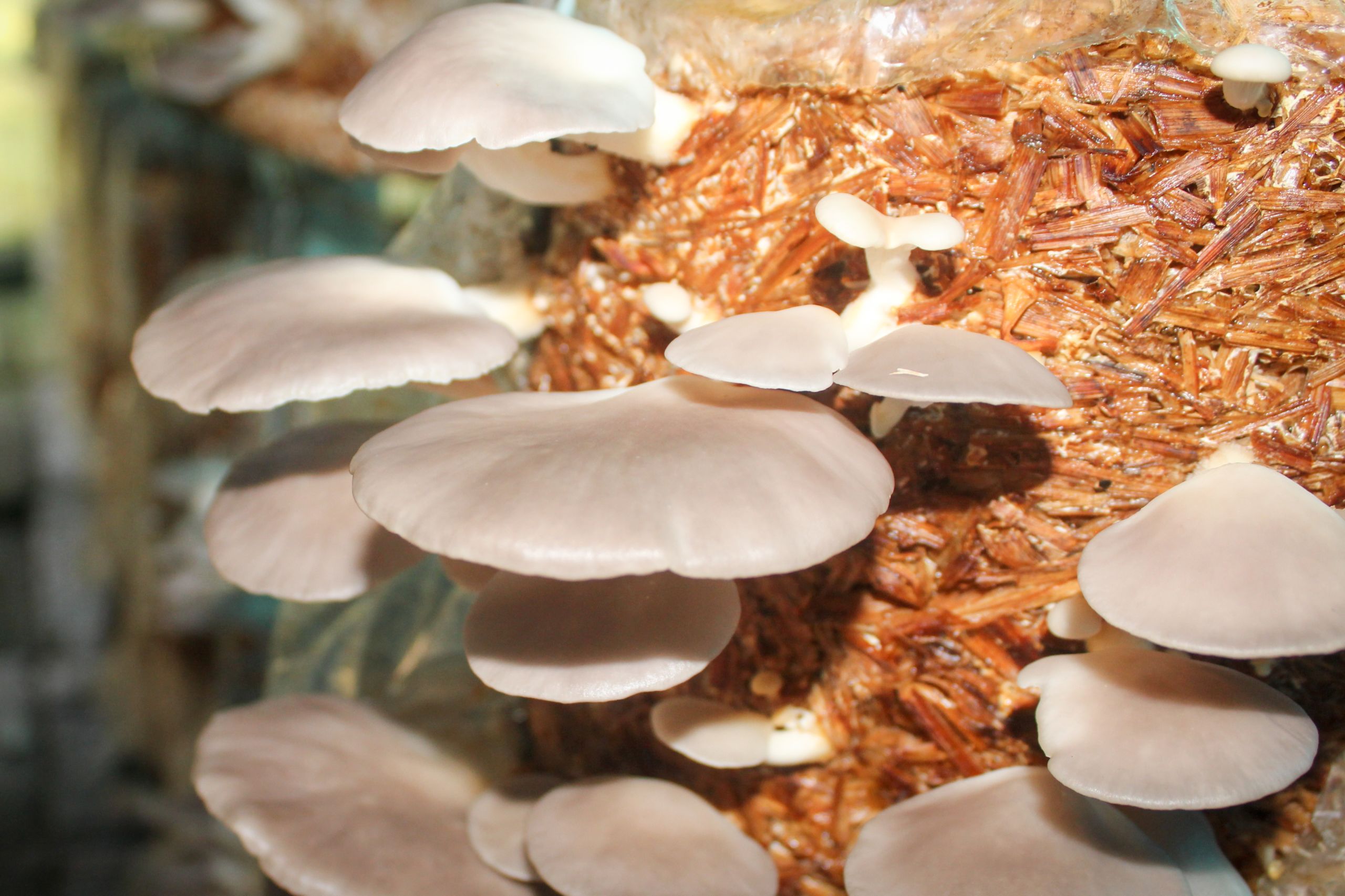



Modernity Rules
To reduce the dependence on firewood - which results in deforestation and pollution, and contributes to climate change - the Group for Rural Infrastructure Development Nepal (GRID Nepal) applied for a grant to begin an innovative demonstration project that uses a sustainable solar alternative to replace the conventional method of growth medium preparation.
Support for the project, Hot water pasteurisation of substrate for oyster mushroom farming, was provided through the Small Grants Programme (SGP), funded by the Global Environment Facility and implemented by the United Nations Development Programme.
GRID Nepal is committed to working in partnership with local communities, NGOs, and international organisations to uplift quality of life in rural Nepal. Through continuous research to identify infrastructure that can be created using local human resources and technology, GRID Nepal aims to bring into practice technologies that make optimal utilisation of locally-available resources to solve domestic problems.
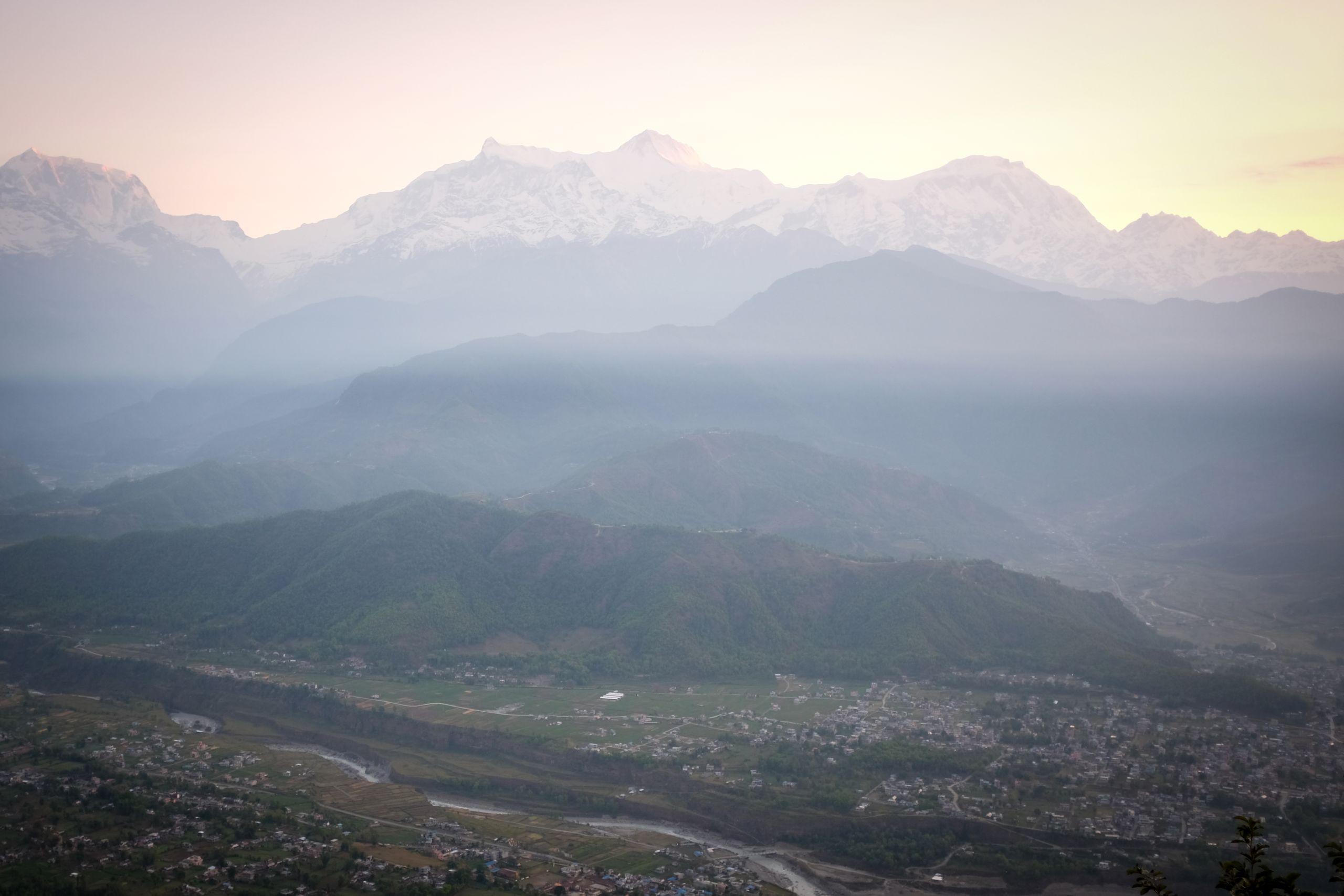
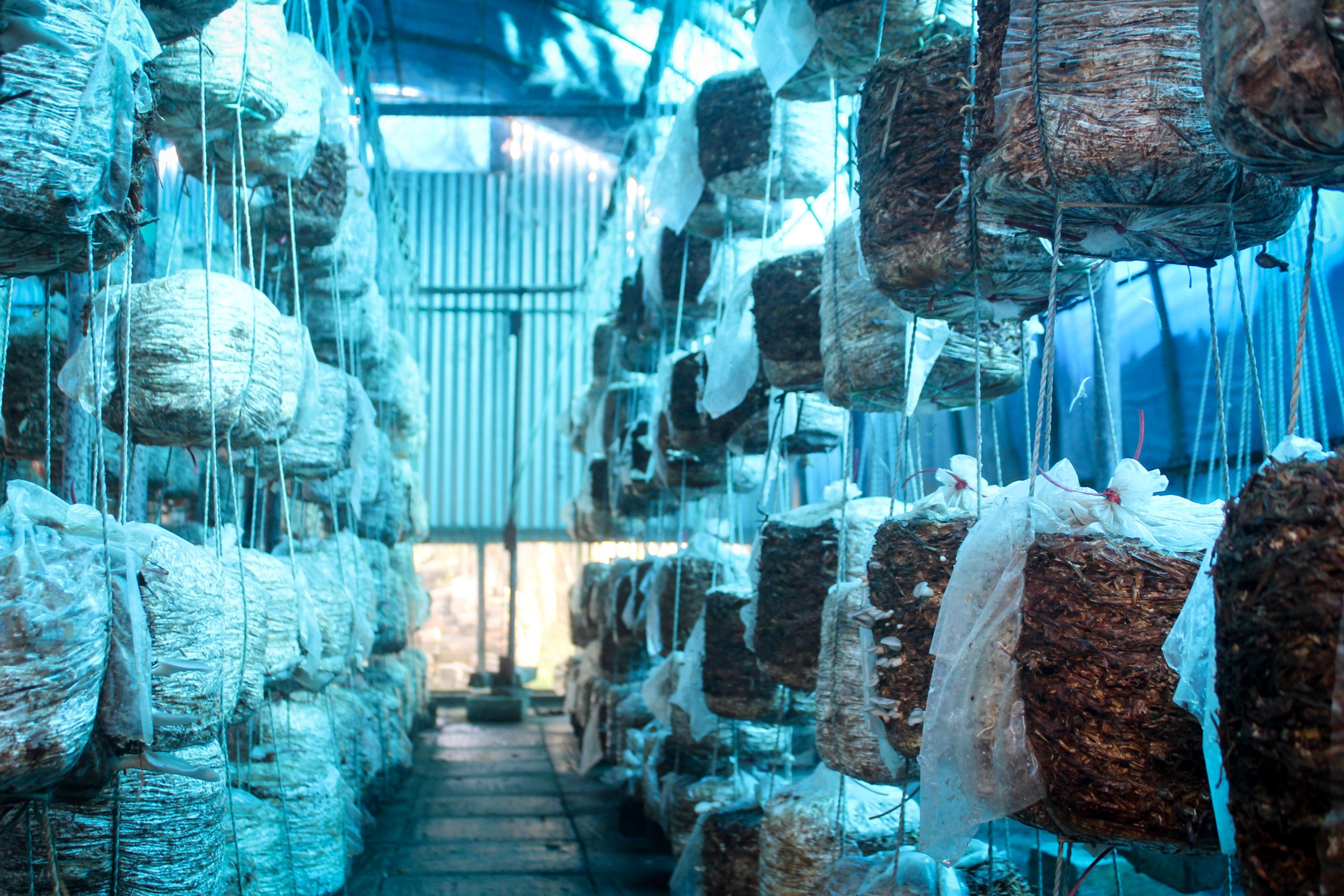
Saving Trees, Saving Time
Saving firewood, the project has successfully used solar water heaters for the pasteurisation of growth medium for oyster mushroom farming in Biratnager, Eastern Nepal.
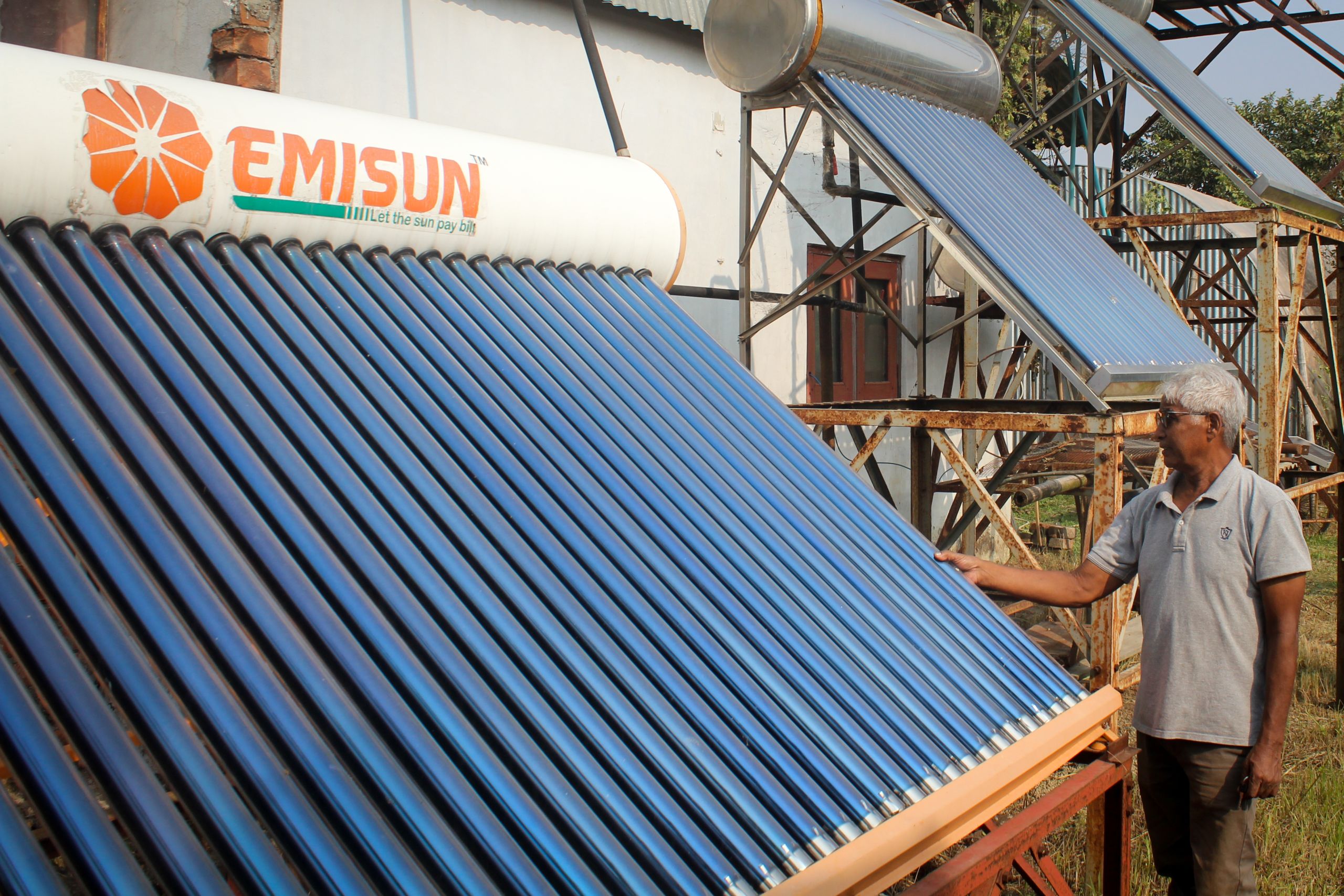
The technology produced 717 kg of organic mushroom from the pilot project, helping to save 717 kg of firewood and 1.1 tonnes of CO2-equivalent. Per annum, the technology is expected to save 27 tonnes of firewood around the project site, preventing emissions of over 41 tonnes of CO2-equivalent.
Steaming the mushrooms in water heated by a solar water heater is user friendly and efficient. In addition to saving firewood, it reduces the pasteurisation time to 0.5-1 hour, compared to 3 hours when using the traditional steaming system. In addition, the traditional pasteurisation process takes place outdoors, which presents problems during the monsoon season.
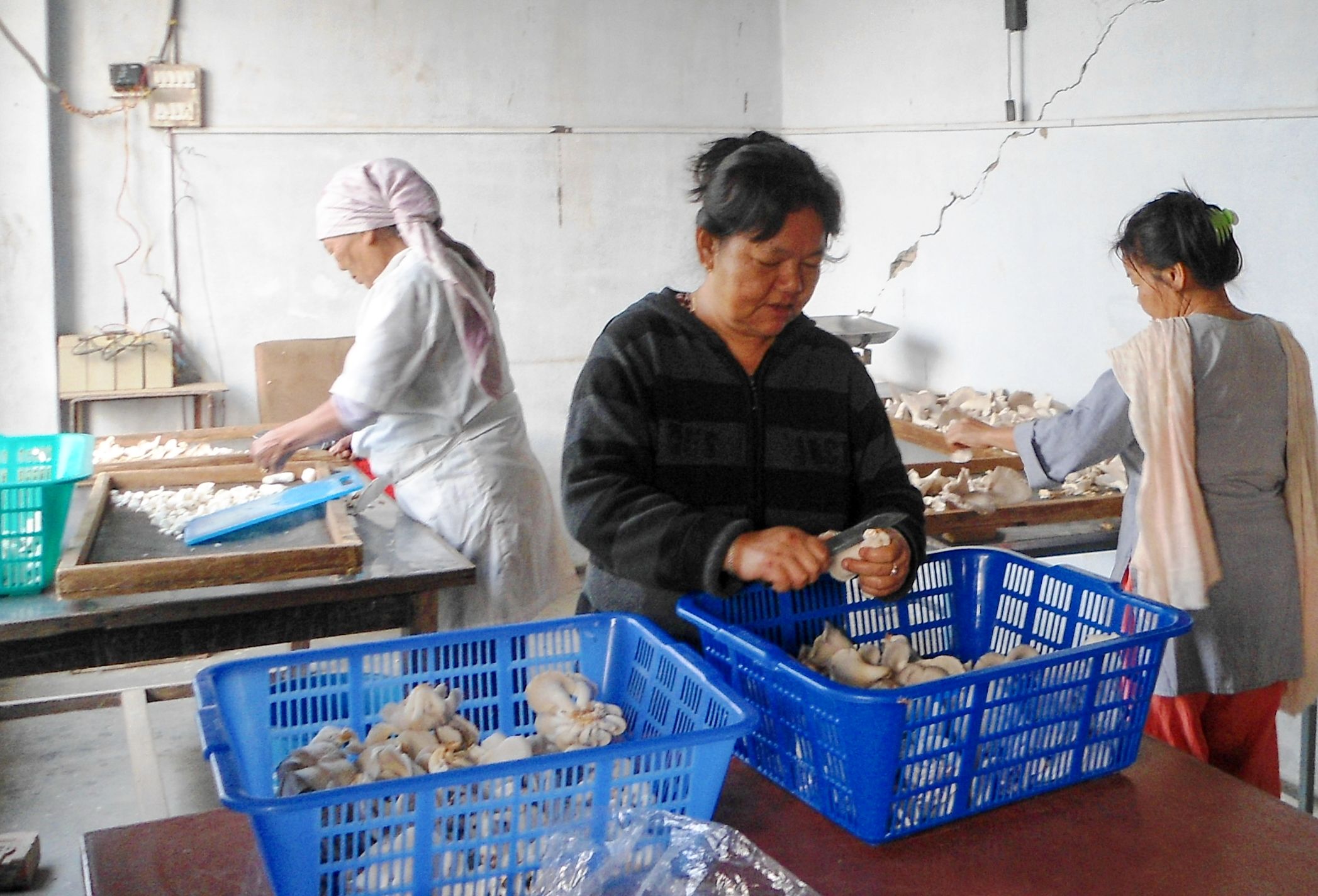
"This is one of the best examples of productive use of solar energy. It not only reduces CO2 emissions, but also eases workloads."

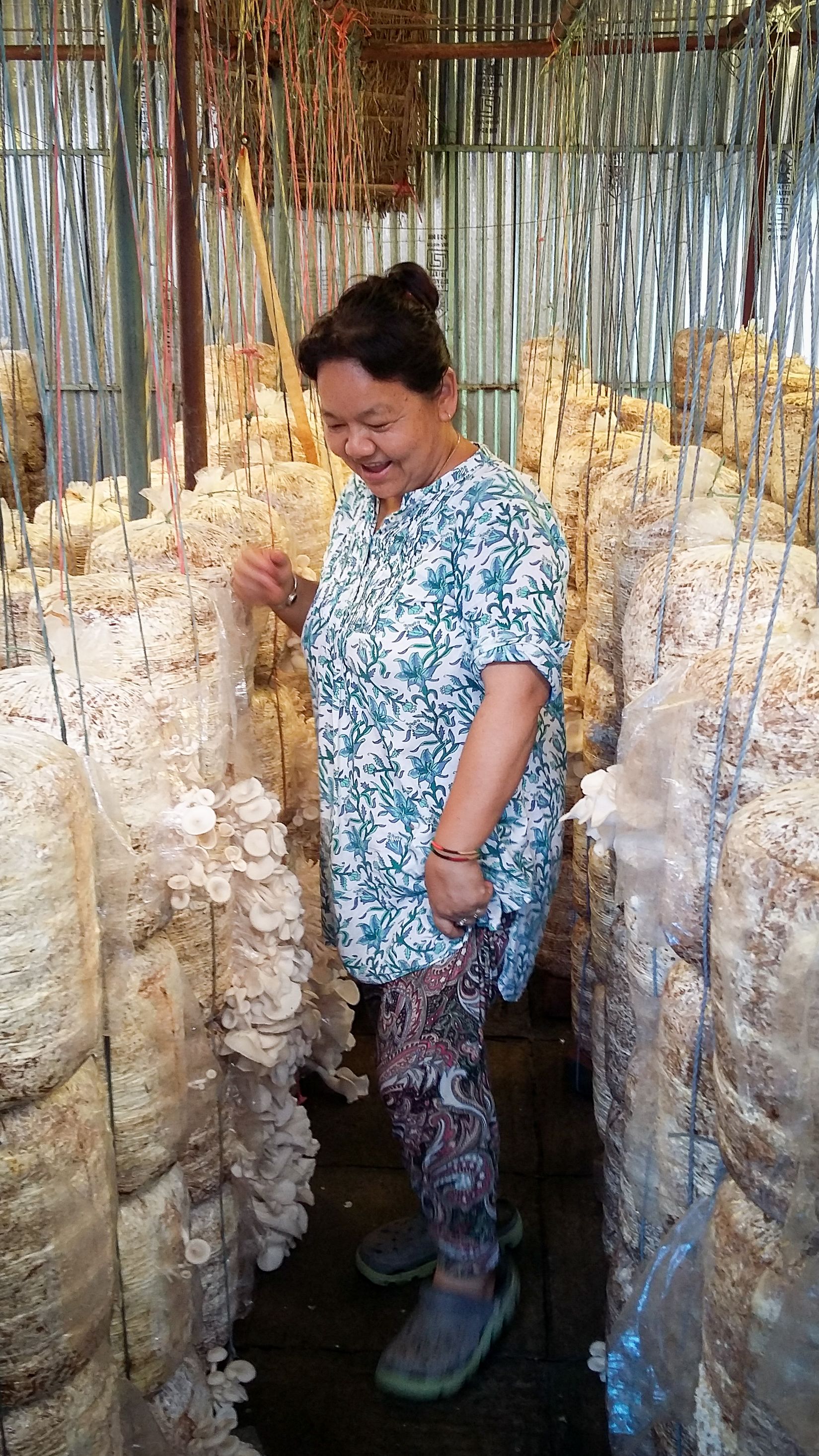

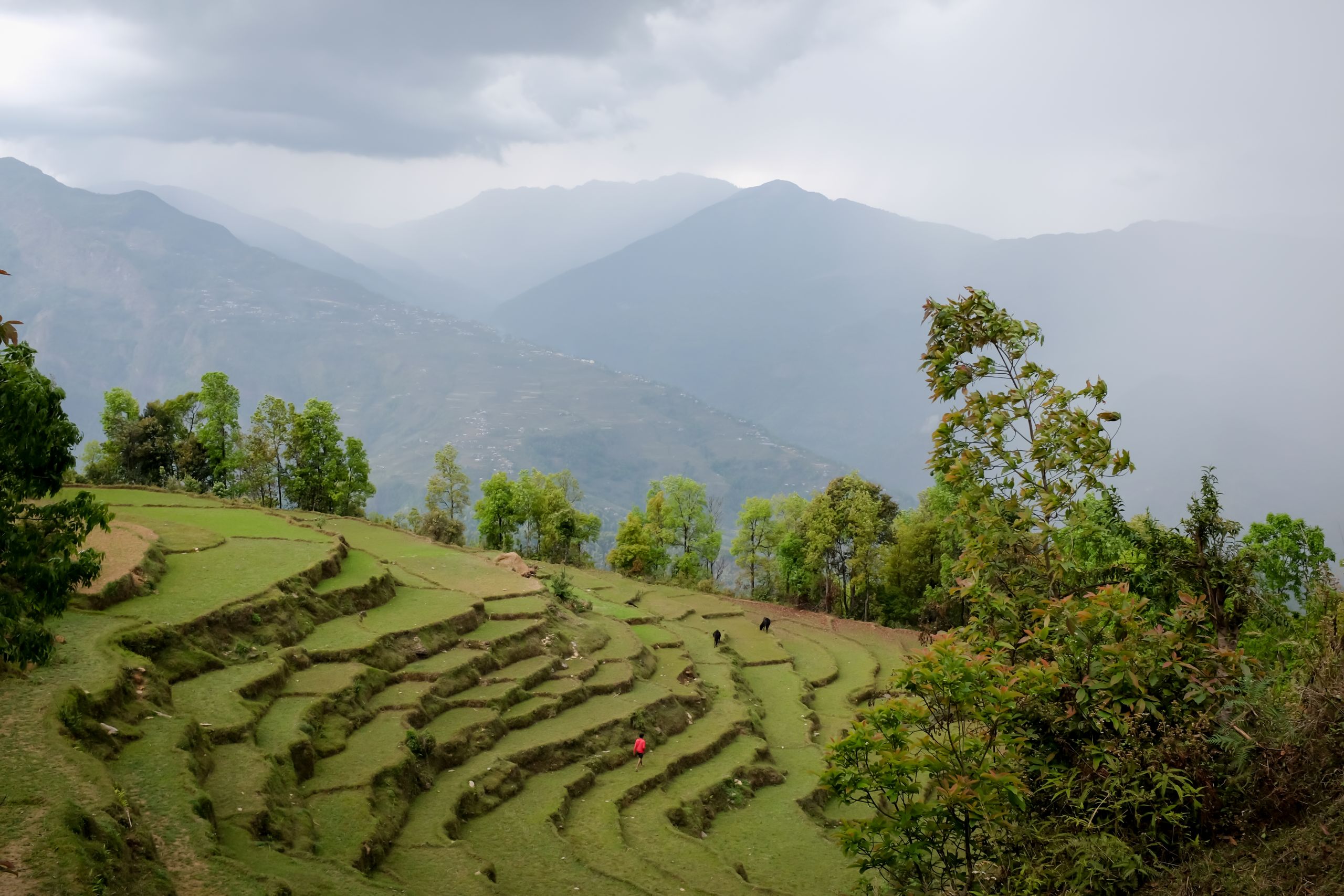
Thinking Local
Key to the sustainability and broader adoption of this community innovation is its local focus.
From the start, the project partnered with Natural Nutritious Agro Product (a commercial mushroom producer), Clean Energy Walk-in Learning Center (demonstration site) and Krishna Grill & Engineering Works (producer of equipment) for planning and operationalisation.
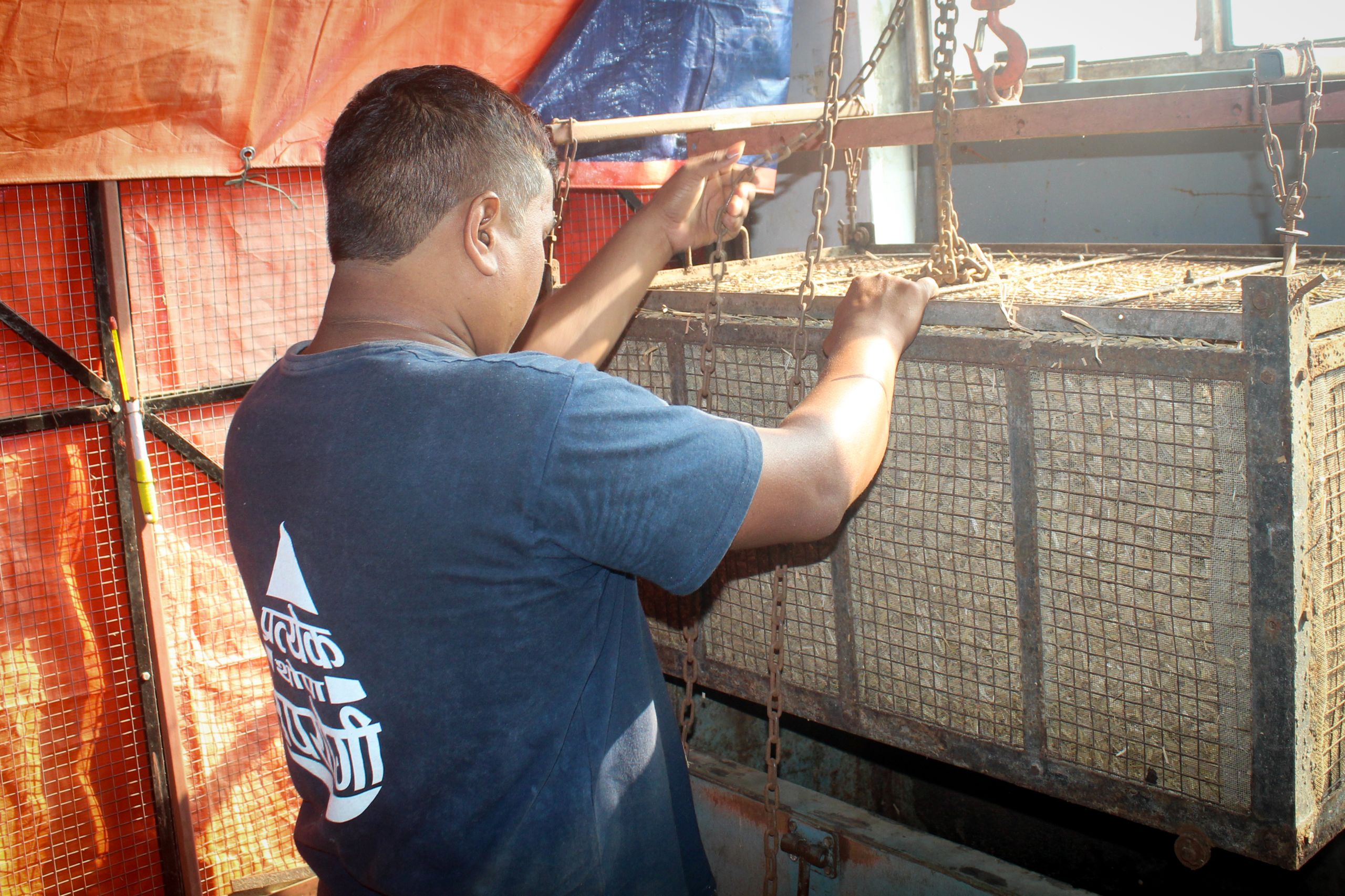
In addition to the vacuum tube solar water heater units, all the machinery and accessories - including the pasteurisation vat, growth medium containers, and chain pulleys - are designed and manufactured locally. As a result, virtually the entire system can be locally manufactured and repaired.
Moreover, the system developed is operator-friendly and semi-mechanised, and is, therefore, much less labour intensive, and in turn accessible to a broader workforce.
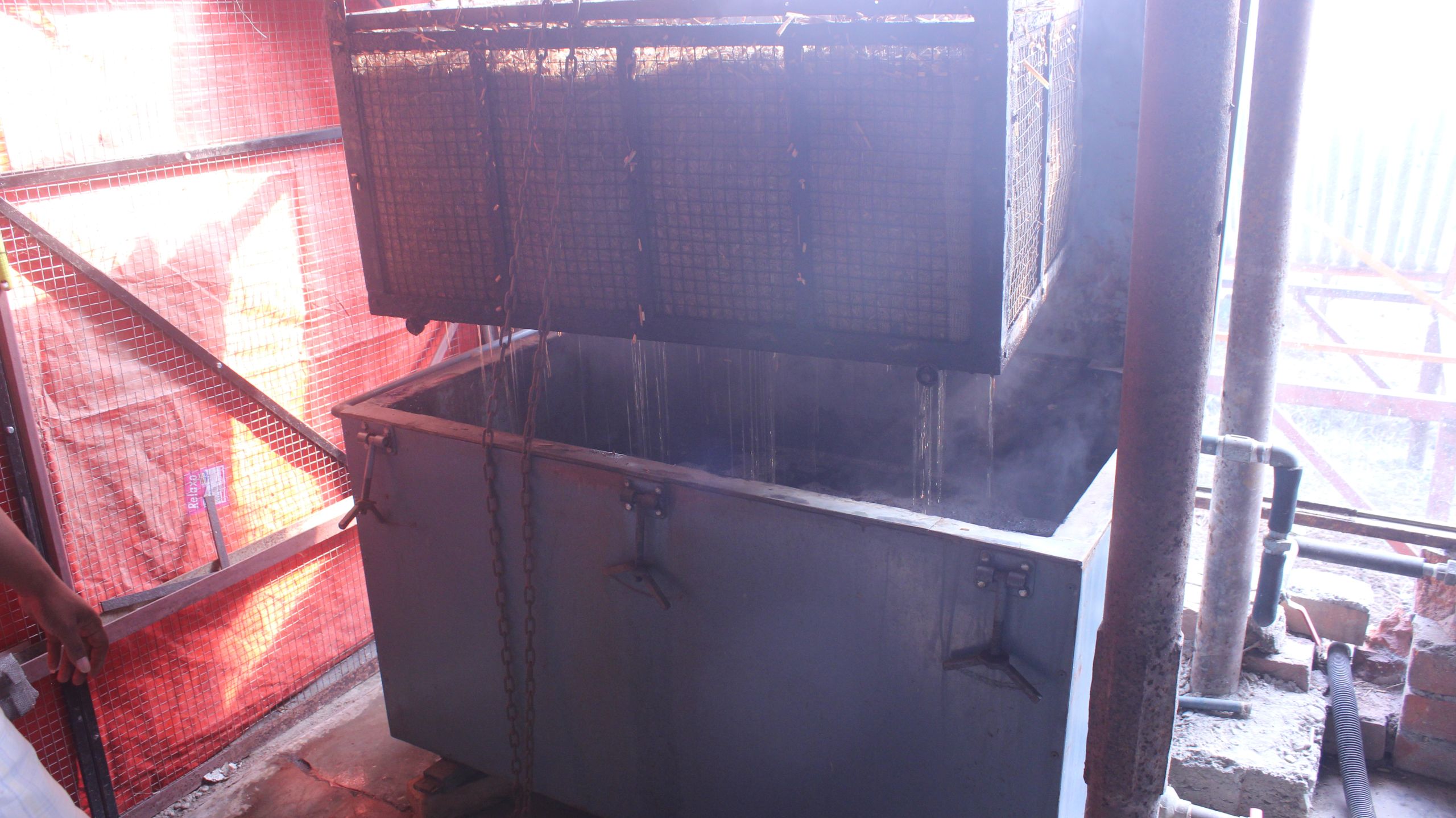
The innovation is really appreciable as the cost of firewood is increasing every year and this is definitely reducing the per unit production cost. I also highly appreciate the mechanisation part: the use of pasteurisation vats and chain pulleys have eased the operating system.
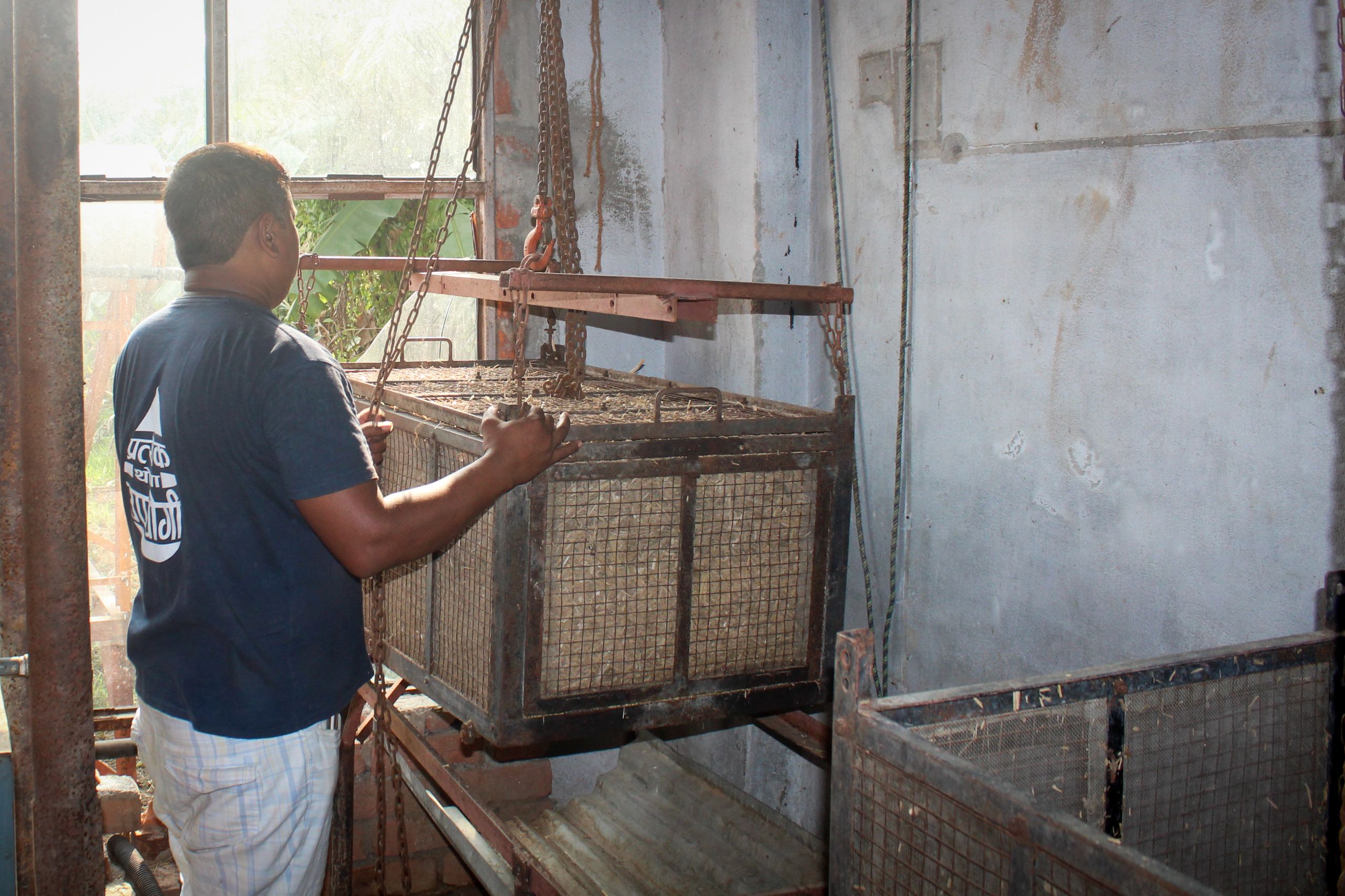



Organic and Hygienic
This process facilitates organic and hygienic oyster mushroom cultivation, which is both environmentally friendly, safer for workers, and very user friendly
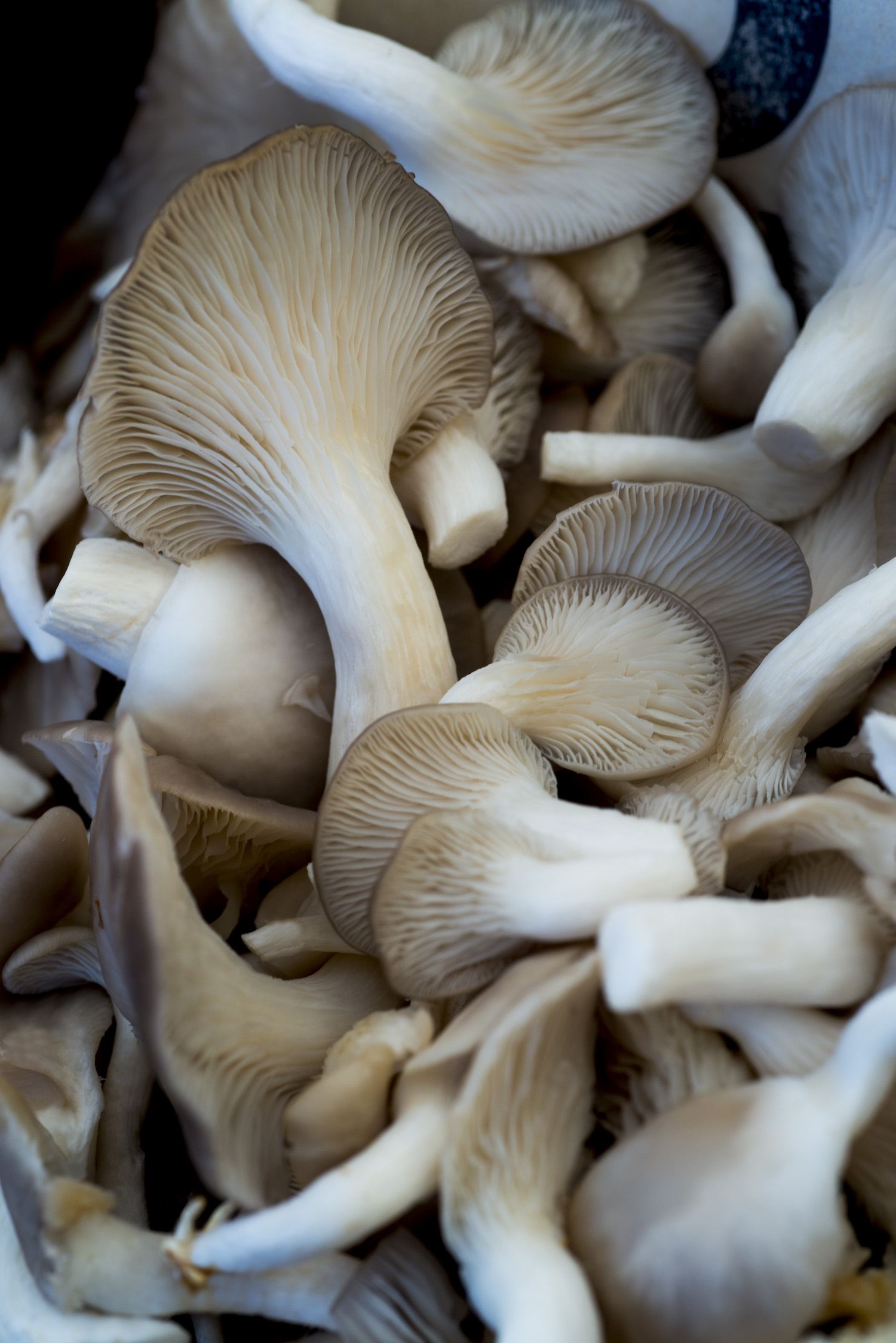
"Because the mushroom is organic and hygienic, customers are willing to pay 20% more."

Small Grants, Big Impacts
Since 1993 when SGP grants began in Nepal, SGP Nepal has supported over 222 projects to protect biodiversity, address climate change and prevent land degradation.
By providing financial and technical support to projects that conserve the global environment while enhancing people's well-being and livelihoods, SGP demonstrates that through a mix of motivation, creativity, technology, and knowledge, we can find concrete solutions to some of our most pressing social and environmental challenges.
For more information on this specific project, please visit the project profile: Hot water pasteurisation of substrate for oyster mushroom farming
For more information on SGP-supported projects in Nepal, visit the SGP Nepal Country page
For more details on the overall Small Grants Programme, click here.
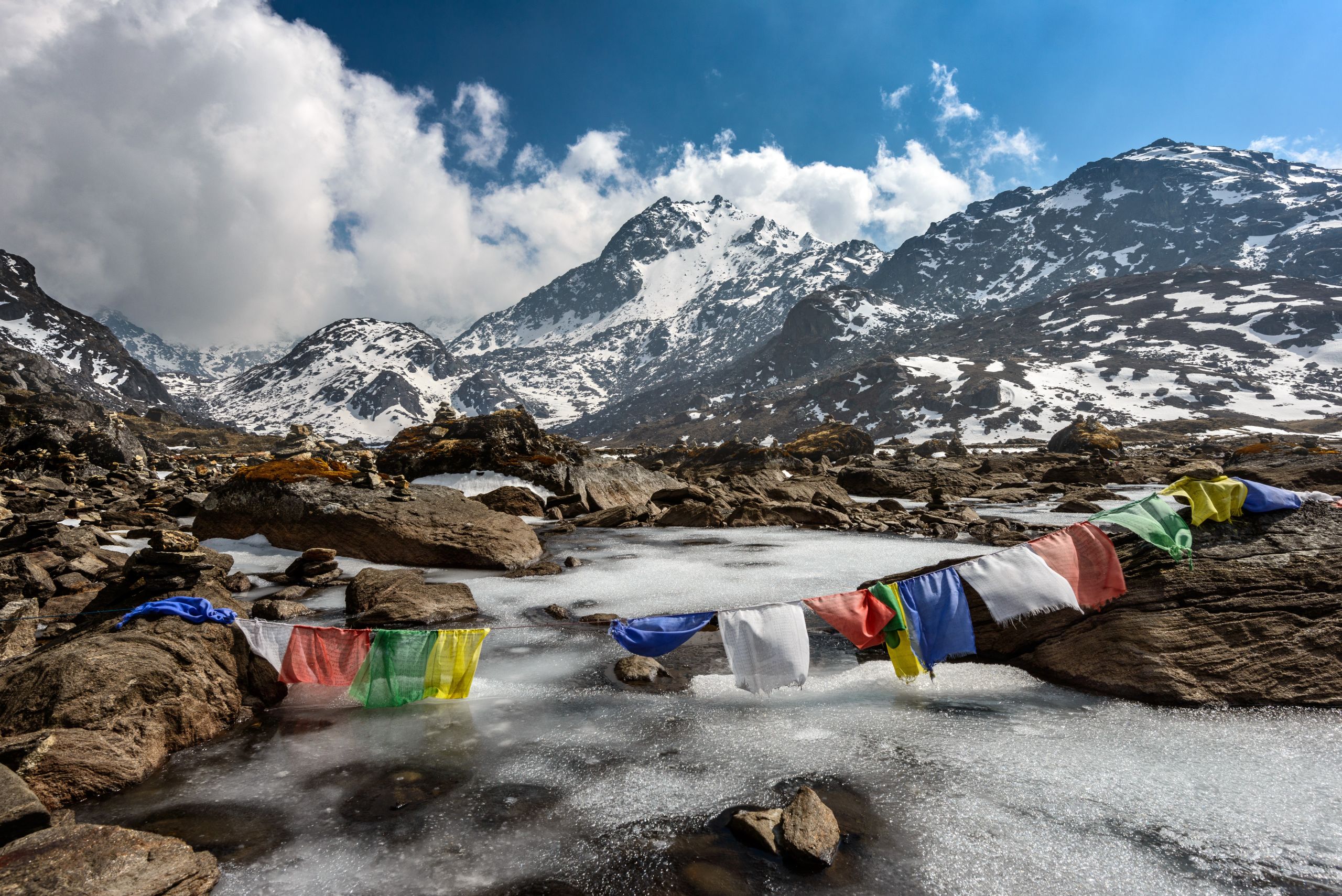

Text by Vivek Sharma, Andrea Egan, Ana Maria Currea / Photos: SGP Nepal , additional photos courtesy of Andrea Egan, Babu Raja Shrestha and Vivek Sharma
Location: Nepal
